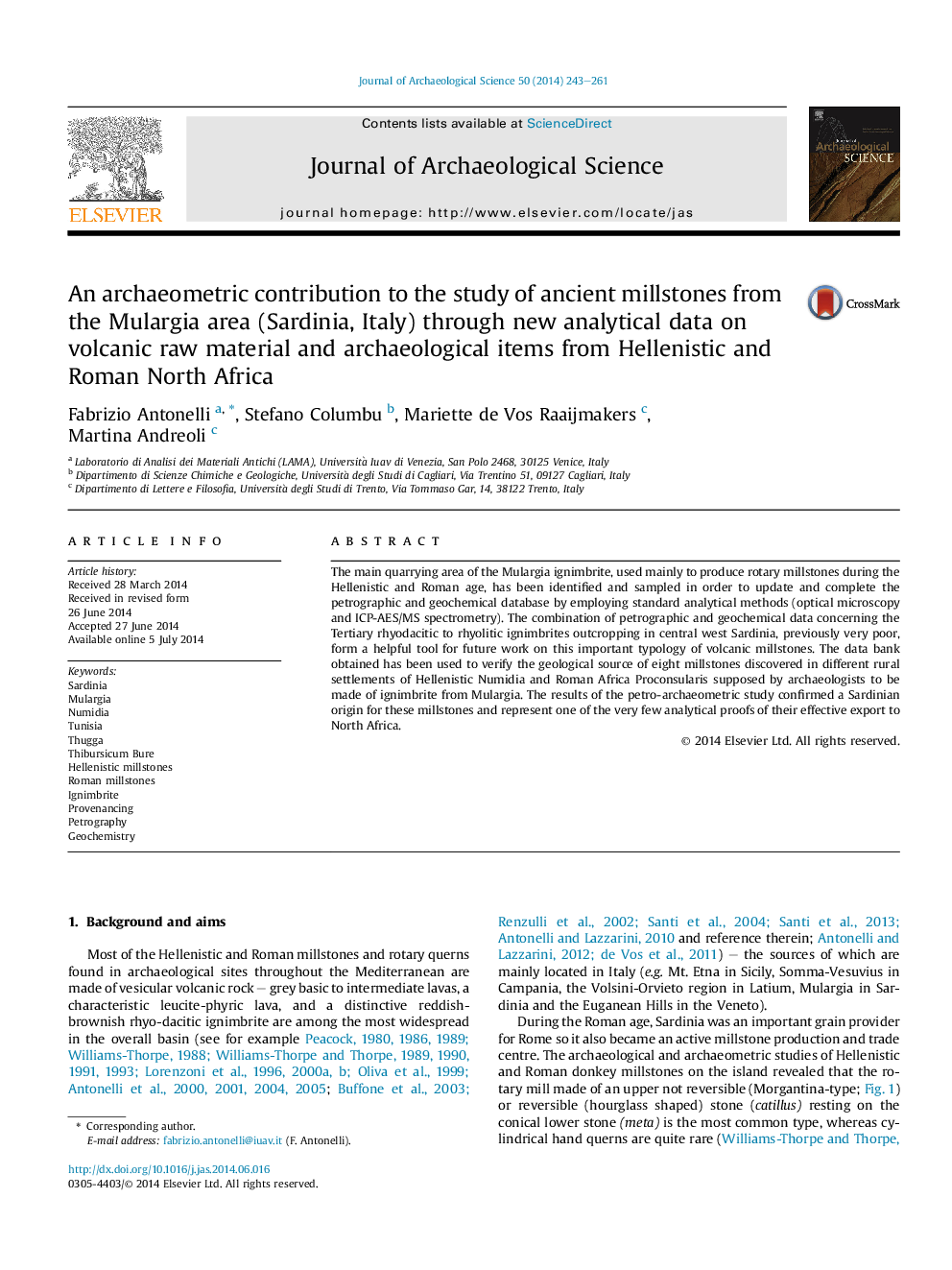| Article ID | Journal | Published Year | Pages | File Type |
|---|---|---|---|---|
| 7442956 | Journal of Archaeological Science | 2014 | 19 Pages |
Abstract
The main quarrying area of the Mulargia ignimbrite, used mainly to produce rotary millstones during the Hellenistic and Roman age, has been identified and sampled in order to update and complete the petrographic and geochemical database by employing standard analytical methods (optical microscopy and ICP-AES/MS spectrometry). The combination of petrographic and geochemical data concerning the Tertiary rhyodacitic to rhyolitic ignimbrites outcropping in central west Sardinia, previously very poor, form a helpful tool for future work on this important typology of volcanic millstones. The data bank obtained has been used to verify the geological source of eight millstones discovered in different rural settlements of Hellenistic Numidia and Roman Africa Proconsularis supposed by archaeologists to be made of ignimbrite from Mulargia. The results of the petro-archaeometric study confirmed a Sardinian origin for these millstones and represent one of the very few analytical proofs of their effective export to North Africa.
Related Topics
Physical Sciences and Engineering
Materials Science
Materials Science (General)
Authors
Fabrizio Antonelli, Stefano Columbu, Mariette de Vos Raaijmakers, Martina Andreoli,
